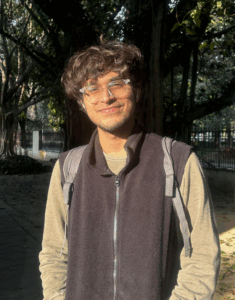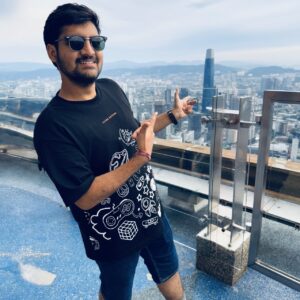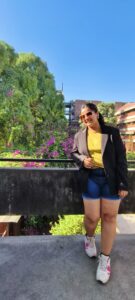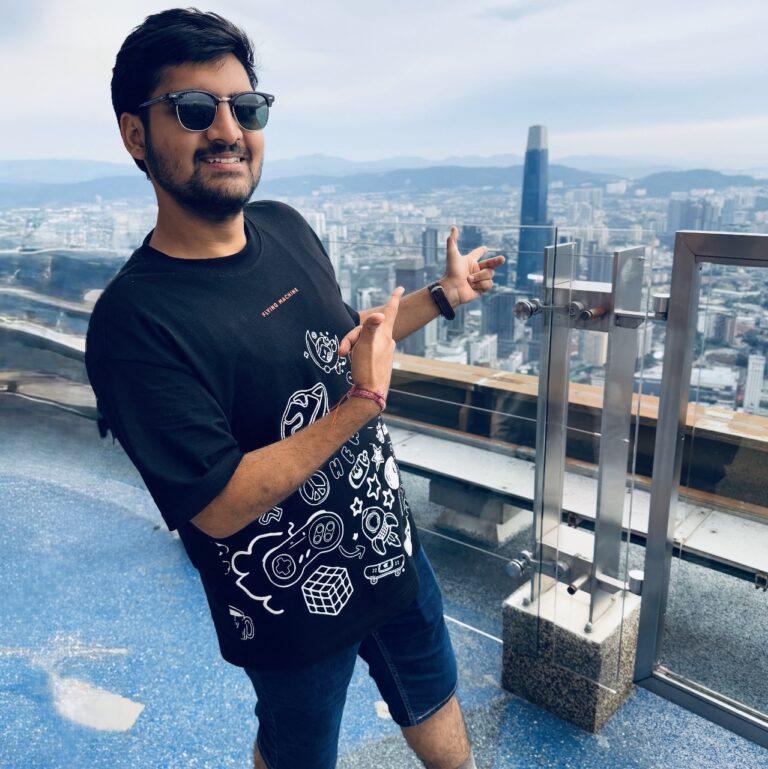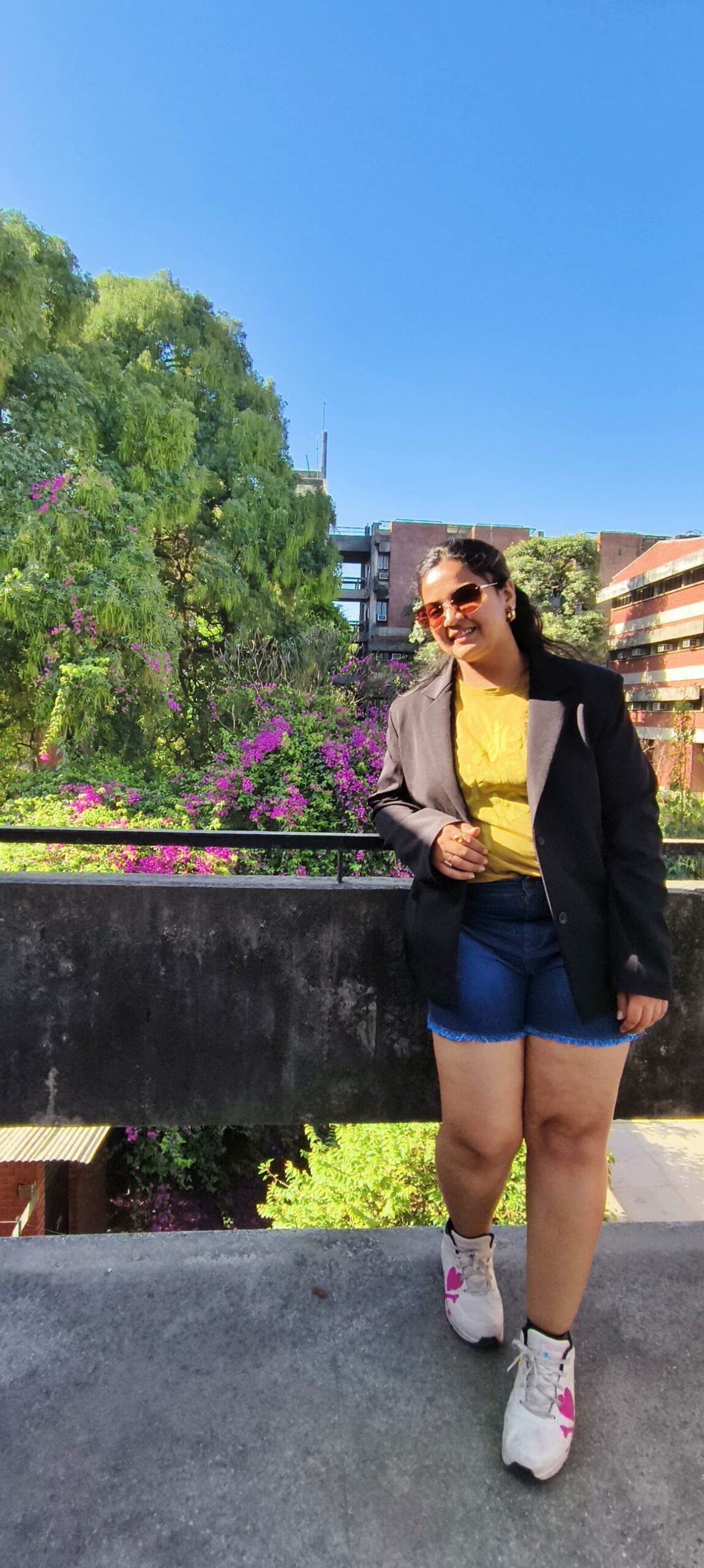Disclaimer: Vox Populi, IIT Kanpur, is the exclusive owner of the information on this website. No part of this content may be duplicated, paraphrased, or interpreted in any other way without written consent from Vox Populi. If you want to reproduce any of the content on this page, please contact our chief editors directly or reach out to us by email at voxpopuli@iitk.ac.in.
In this 18th edition of As We Leave, Rohan Virmani, a Y21 student from the Department of Chemical Engineering, takes us through a deeply personal and candid reflection on his IIT Kanpur journey. His story begins with the silent struggle of JEE preparation during the COVID lockdown, leading to an online first year that gradually transitioned into vibrant campus life. Rohan chronicles his experiences through the highs and lows of balancing academics with diverse extracurriculars, from national-level tennis to leading the Music Club. He shares moments of self-doubt and broken friendships, alongside the triumphs of major projects, a challenging corporate internship, and the profound bonds forged with friends and mentors. Rohan’s narrative is a testament to perseverance, the importance of trusting one’s intuition, and the transformative power of finding one’s purpose and community, ultimately concluding with the bittersweet farewell to a place that gave him “a voice, a purpose, a family, and a story”.
Disclaimer:- The views presented below are the author’s own and are not in any manner representative of the views of Vox Populi as a body or IIT Kanpur in general. This is an informal account of the author’s experiences at IITK.
Before IIT Kanpur, there was a dark, uncertain stretch. I prepared for JEE in the middle of the COVID lockdown—a time of silence, screens, self-doubt, and survival. There were no classrooms, no coaching centers, no fixed schedules. I often found myself wondering: Am I really good enough for this? The isolation tested me in ways I hadn’t expected. But I made it. I stepped into IITK not with full confidence, but with quiet hope—and that was enough to begin.
First Year – From Screens to Scenes
My first year at IIT Kanpur didn’t begin at a campus gate or a hostel room. It began on a laptop screen. We were the COVID batch—Y21—and for the first few months of college, home was the classroom, and Zoom was the auditorium. There were no corridors buzzing with chaos, no lecture halls to get lost in, no canteen chai at midnight. Everything we were told college would be… was on hold.
Still, I wanted to feel something. So I showed up to everything I could—orientation meets, random batch calls, informal student interactions—just to get a sense of what this community might be like. As a singer, music became my gateway into connection. I sang at meets, open mics, even casual chats. Soon, people started to recognize me. “That guy with long hair who sings.” The support I received online was something I hadn’t expected. Instagram became my stage, and it felt like I was becoming part of a shared identity, despite the distance. Even seniors knew me by name—thanks to the power of music and social media.
But academics? That was another story.
Online classes didn’t feel real. We were told about strict proctoring. It made exams feel like landmines, and yet, a strange casualness crept in. I couldn’t get myself to focus. Lectures blurred into each other. Motivation came in waves and disappeared just as quickly. I was “in IIT Kanpur,” but I didn’t feel like I was in college. Still, I began to learn -not just course material, but how to manage myself in a world without structure. More than that, I began to understand just how incredibly talented and brilliant the people around me were. From Olympiad rankers to kids who’d built startups before arriving here, IITK was a different league altogether. That realization was humbling. It stripped away the comfort of being a “topper” and replaced it with quiet awe.
And yet, we made space for fun too.
I still remember the prank mail someone sent—pretending to be from the EC, accusing people of cheating. I fell for it. We all did. And we laughed about it for days.
We had midnight gossip sessions, theories about when we’d be called to campus, and emotional support group-style venting about classes. We found friends in people we hadn’t even seen in person. It was strange, beautiful, and confusing—all at once.
One of the most comforting structures during this time was the Counselling Service. It wasn’t just an orientation program—it was a system of support. Every fresher had a Student Guide (SG), who we called our Baapu. Their SG was our Dada, and we even had to find our Amma. What started as jokes and memes eventually became real connections. These seniors helped us navigate everything from course selections to random emotional breakdowns at 2 AM.
And then it finally happened.
On April 2nd, 2022, the Y21 batch arrived on campus. After months of online guessing, I was finally here. The sun felt different. The buildings, real. The people, alive. The offline orientation began, and I performed on stage for the first time—singing and beatboxing in front of a real crowd, feeling the weight of real applause. I still remember the rush, the nerves, the silence before the first note. That performance marked something for me. It wasn’t just a song. It was a transition.
That orientation period was full of moments. I participated in CS events like “Reel to Real”, which I ended up winning. I made more friends, explored more corners of the campus, and stepped deeper into the cultural life here. I even took part in the freshers’ dance showcase—a performance that would go on to cross over 10 million views online. It felt like a strange mix of virality and vulnerability, but it made me feel seen. Academically, I was able to maintain the CPI I had secured in the online semester. But now, with offline life in full swing, time management became real. Between rehearsals, hangouts, assignments, and figuring out where Lecture Hall Complex actually was, I learned how to juggle chaos. I also started playing tennis again, slowly reconnecting with the sport that had once made me a national-level player back in school. That first hit of the ball on IITK’s courts was pure nostalgia.
By the end of the year, I wasn’t just adjusting—I was living. I had my friend groups, a growing sense of identity, and a feeling that I had space to grow. It wasn’t perfect. I had bad days. I had moments of doubt. But I was starting to believe that I could build a life here—not just pass through it.
“If you’re a fresher reading this—know that it’s okay to feel lost. We all do, even if no one says it. But if you give yourself the chance, this place will give you people, memories, and meaning you didn’t know you needed.”
Second Year – The Grind, the Grief, and the Glory
If the first year was about arriving, second year was about becoming—and also, about breaking.
The year kicked off with what felt like a storm of expectations. Every club was calling for secretary nominations, the councils were recruiting, and people were beginning to shape their college identities. And me? I was everywhere.
I applied—and got selected—into the Music Club, the Finance and Analytics Club, and Vox, the journalism body. I was also involved in Techkriti(our tech fest) and simultaneously resumed playing lawn tennis, where I got selected for the Inter IIT 2022 team. But with all that excitement came an impossible question: How much can I stretch myself before something snaps?
One of the first big choices I had to make was between Dance Club and Music Club. I wasn’t formally trained in either, but I’d enjoyed both. And while I could move decently on stage, I couldn’t ignore the feeling of singing—that rush. I chose Music, trusting that I could dance anytime in life, but music at this scale? This was my window. But the joy of making it into all these spaces quickly collided with schedule clashes, pressure, and sacrifices. That hit me the hardest when I realized I wouldn’t be able to represent the Music Club at the cult meet. Why? Because of tennis commitments. That moment stung. It felt unfair. Like I was being punished for being involved in too many things. Seniors helped me navigate the emotions, explaining how club dynamics, selection processes, and internal politics work.
That’s when I learned: sometimes, you don’t get rejected because you weren’t good enough. You just didn’t fit the puzzle that day.
Still, I gave my best to tennis. We went to IIT Delhi for Inter IIT, and even though we didn’t win a medal, we fought hard and reached the quarterfinals. The training phase brought back that old sporting discipline—morning practice, controlled routine, eating right, sleeping early—all while still juggling club meetings and deadlines. It was intense. But it reminded me of who I had been once, and what I was still capable of.
Meanwhile, I was also functioning across three student councils.
● Under SnT, I was a Finance Club secretary.
● Under MnC, I was active in Music Club.
● Under GnS, I was repping tennis.
It was insane. My calendar was packed beyond logic, and I was running on fumes most days. But I was learning—about how IITK works, about how people work, and about how I work under pressure.
And then, life threw its first really tough test.
Some of my closest friendships began to crack and fall apart. Misunderstandings. College differences. Hurtful things said, unsaid, assumed. I felt like the ground under me was shifting. For someone who had always been surrounded by strong support systems, this was hard. And to make it worse, I had started getting mocked and criticized. Not by strangers—but by people I had shared things with. People who once cheered for me.I started becoming the topic of side jokes. I felt watched. Judged. And for the first time since arriving at IITK, I felt alone in a crowd.It shook me. I began to overthink everything—every word I said, every event I performed at, every time I raised my hand in a class. It was like my confidence had slipped through a crack I didn’t notice forming.
But here’s the thing: I kept going.
Somewhere in that phase, a few people reminded me of who I was. They sat with me, listened, laughed, challenged my spirals. They helped me breathe again. And slowly, I found newer friendships, deeper connections, and more importantly—a better version of myself.
But then came another hit.
I had applied to become a Student Guide (SG), I wasn’t selected. When I found out why, it felt deeply unfair. That night was a quiet one. Not dramatic. Just… heavy. I again doubted myself and did not feel motivated to continue and apply for any 3rd year Por, but with a lot of self thoughts I rose and thought of not letting down myself and my 2nd year struggles. I was not very confident but what I didn’t know then was that something big was coming. After a long chain of events leading to a very emotionally draining interview, I was selected as the Coordinator of the Music Club. The very club where I once nervously auditioned for a small spot in the line-up… I was now going to lead.
That feeling? Unmatched. I still remember sitting in the club room after it became official, looking at the walls, thinking about all the times I had sat there frustrated, inspired, angry, or in awe. And now—I had the keys. The rest of the semester passed in a strange combination of exhaustion, growth, and closure. I wasn’t everywhere anymore. I had my focus, my people, and a clearer understanding of what mattered.I could have gone on to become the Tennis captain—I had a shot. But once again, I chose music. And my tennis captain didn’t just understand that—he supported it. That moment of respect meant more than any selection letter.
I ended second year with fewer people, but stronger bonds. Friends became family. My wingmates, my club teammates—we had all been through our own versions of chaos, and now we stood together, wiser.
“This year taught me that you will lose people. You will be misjudged. You will doubt yourself. But if you keep showing up—with integrity, with passion, and with patience—you will find your place. And more importantly, you’ll find your people.”

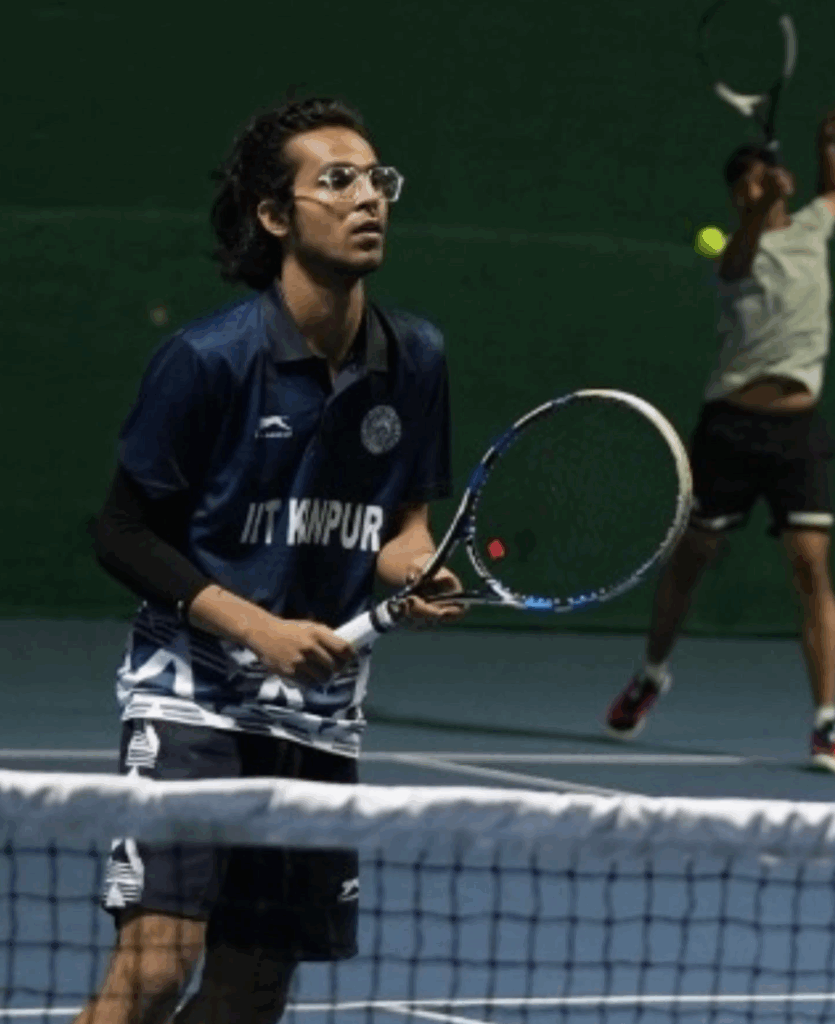
The Summer That Changed Everything – From Isolation to Impact
The summer after my second year was not a break. It was a battleground—with three fronts: Music Club leadership, a SURGE research internship, and the most stressful thing on campus at the time—internship preparation.
On one hand, I had just stepped in as the Coordinator of the Music Club. That wasn’t just a title—it came with legacy, pressure, and expectations. I began reaching out to the juniors, setting the tone, building systems, and shaping a vision for the club. I launched new initiatives—small event ideas, experiments to test how we could revive our presence. But it wasn’t all strategy and spreadsheets. I remember nights spent in the club room—sitting with secretaries, cleaning the space together, getting familiarised. We celebrated the clean-up with treats, stayed back to watch movies, cracked jokes, and started building something real.
It felt like more than leadership. It felt like home.
But that was just one side of the summer.
I had also taken up a SURGE research project under a Chemical Engineering professor. The topic was exciting—self-propelled particle motion—and it sounded like something that would challenge me. I worked under two PhD scholars. One helped me with the code—we worked on data analysis of particle trajectories. The other had me do actual experimental prep in the lab. It should’ve been a fantastic experience. But the professor, unfortunately, was almost entirely absent. We didn’t even meet him properly until the last day. That lack of engagement left a bad taste, and I made up my mind not to continue the work post-SURGE. Still, I learned a lot—about how research happens, about how to work with teams, and most importantly, about what kind of work doesn’t excite me.
And then came the real mental war—internship preparation.
I knew one thing with certainty: I didn’t want to do coding. Not long-term. Not even short-term. But in IIT, especially during internship season, coding becomes the default religion. So I followed the crowd—learned DSA, did competitive programming, solved problems, sat for mock tests. And while I could do it, I just… hated it. The pressure got worse when I wasn’t even shortlisted for the top three consulting firms I was aiming for. I had genuinely believed I had a good shot. And when those doors didn’t open, I panicked.
“What if I’m not good enough for the other firms too? What if this was my one shot?”
The frustration grew. The stress mounted. And one day, I just cracked. I broke down on a video call with my family—told them I couldn’t do this anymore. That I didn’t know what I was doing, and that I was scared. Their response? Unshaken trust. They told me they believed in me—whatever I chose, whatever I failed at, whatever I tried again. That gave me the strength to finally listen to myself. I dropped DSA. I pivoted to analyst and techno-managerial roles—roles where I could speak, ideate, analyze, present. It felt more natural. I began preparing for resumes, interviews, group discussions. I stayed up late practicing stories, building frameworks, understanding what made me different—not just employable.
And then, as summer reached its end, the internship tests began. The atmosphere on campus shifted—tense, electric, desperate.
I gave a few tests. Waited. Then came ITC.
I cleared the resume shortlist. There was an online test a few days before Day 0. And then came the big night.
Day 0 – The Night I’ll Never Forget
On Day 0, I was slotted for a Group Discussion (GD) round with 8 people. We entered the room, gave our best in that 10–15 minute chaos of ideas, buzzwords, and speaking-time politics. It ended at around 9 PM.
And then came the wait.
We were told the callback list would be out by 11 PM. At 11:30, I wasn’t called. I assumed I was out. Disappointed, I walked over to the Music Club. Just wanted to sit, maybe distract myself. Then headed back to my room around 3 AM, ready to sleep off the sadness.
And then it happened.
3:15 AM. My phone rang. It was my POC.
“You’re on the waitlist. You have your technical round in 15 minutes. Be ready.”
I was in shock. I had no prep materials. No suit laid out. I splashed water on my face, ran out, and headed to the interview venue.
I was tired. But alert. And when I entered the room, I did the one thing I knew best—I told a story. I steered the conversation to my SURGE project, broke down the logic, and explained how I handled problem-solving in a messy research environment.
They nodded. Asked smart follow-ups. I handled them.
That round went from 4 AM to about 5 AM.
We were told that a second technical round would happen in the morning for those who cleared the first. The next shortlist would be released around 7 AM.
I didn’t sleep. I couldn’t.
Instead, I revised my core chemical engineering concepts and prepared for the final battle.
At 7 AM, the list came out. I was in.
The Final Interview – Structure, Story, and Silence
At around 8:30 AM, I reached the ITC office. There, I was met by the HR Ma’am, who casually asked about my music, my tennis, and everything that wasn’t academic. It set the tone for what was to come. Then I walked into the second technical round—a formal interview in an oval office. I was nervous, but ready. They threw a few trick questions at me. I didn’t get flustered. I pulled out a sheet, drew structured diagrams, built a logical flow, and talked them through my approach—not just my answers.
I could see them nodding. Interested. Engaged. I stepped out knowing I had left it all on the table. And around 11 AM, the results were announced.
I was selected.
That moment still feels unreal.
From the waitlist to the final selection—from the edge of self-doubt to standing among the first to get an intern on Day 1 morning—it was a journey I’ll never forget.
“That summer taught me many things. But above all, it taught me this: Trust your discomfort. Your intuition. Your chaos. Sometimes what breaks you is only making room for what defines you.”
Third Year – The Rise and the Realizations
The fifth semester started with a strange mix of emotions. On paper, things were going well—I had just finished my Day 1 intern and had a solid chance at a PPO later from ITC since they had a good history for it and so I felt a little secured. But around me, things were different. A lot of my closest friends hadn’t gotten internships yet. They were deep in prep mode, focused, grinding. So while I was free academically, I couldn’t celebrate. It just didn’t feel right.
While my friends stayed buried in coding sheets and prep groups, I spent more time at the Music Club, now as the Coordinator. That was the one role where I could truly give my all. I’d just finished one of the best semesters of my life with a 9-point SPI and a CPI around 8.4, but this time, my priorities shifted. I let go of the academic push and focused more on making sure our club’s legacy stood strong.
We had a packed semester—three to four major club events, preparation for Antaragni in October, and the Inter IIT Cultural Meet coming in December. Days became a routine: waking up, attending a few classes, rushing to the club room, staying there till midnight or later, planning events, training the juniors, figuring logistics, fighting over song parts, and trying to hold it all together.
But leadership comes with its price. Somewhere during that stretch, I started having fallouts with a few seniors. Some of those bonds—ones I had respected deeply—got complicated. I also realized that leading people isn’t about being liked. And in a creative club, where ego, passion, and politics run high, things can get messy. With secretaries, too, the equation varied. Sometimes it felt like I was carrying everything alone. I tried acting tougher than I was, but it drained me. Amid this, friendships I held close started to slip. College differences, misunderstandings, ego clashes—things I thought would never change, did. I began overthinking everything. For a while, I was just functioning. Managing events, attending meetings, planning competitions, keeping up appearances—but inside, I was worn out.
And then came Antaragni. Despite the chaos, the club came together for it. We practiced like mad. The energy was high, the expectations were huge. And somehow, we pulled it off. For the first time in years, Music Club won third place at Antaragni. I still remember standing with the others, looking at the results and realizing: We did it.
That event happened around my birthday, and in a strange way, it felt like the club had given me a gift. All those hours spent learning, scolding, mentoring—it meant something. I had also worked with some seniors to compose an original song for one of the competitions. That process gave me more confidence as a composer and collaborator—it taught me that creation can happen even amidst chaos.
But success came at a cost. All the work took a toll on academics. My attendance dropped in a couple of courses, and I ended up with my lowest ever SPI—7.5. That one hurt. Since school and through JEE prep, I had always been proud of my discipline. I’d kept it together. I had held the balance between passion and academics. And now, I felt like I had let myself down. That sting stayed with me. And it gave birth to a silent resolve:
“ I will work hard in the next sem. I will fix my CPI.”
Because I wanted to graduate with First Division Distinction, that 8.5 CPI. I was sitting at 8.4. So close. But it felt far.
This was also the time I found someone special. Alongside all these hardships, the club gave me someone to share my thoughts with , to share my time with and to feel complete after a long time since I lost most of my closest people last semester. She started off as my secy but that bond grew stronger.
And then came the Inter IIT Cultural Meet in December. This time, things were different. We weren’t just some team—we were a unit. My batchmates, my juniors—everyone I’d grown with was now performing at the highest stage for our club. It was personal. It was emotional. We trained with insane discipline. Weeks of rehearsals. Planning every transition, every note, every lineup. Everyone questioned everything. The pressure was brutal. But we believed in our sound. When we arrived at IIT Kharagpur, we knew we weren’t just representing IIT Kanpur—we were representing ourselves, our club, and our journey.
And then—we delivered.
We won overall second position. A historic moment for the club. I was part of the medal-winning band performance, singing on stage, watching the crowd light up.
I’ll never forget the moment my former Coordinator—who had mentored me in my early days—saw me perform live. Afterward, he came up to me and said he was proud. That hit different. Because I had once stood when he was performing—watching, learning, dreaming.
Now, I was living it.
We returned to campus exhausted but glowing. The club had achieved something big. The juniors had grown. The seniors were proud. The bonds we had built, especially during those long practice nights—they became family.
“That year taught me that even when everything seems to be slipping—academics, people, peace—if you hold on long enough, something will bring you back to yourself.”
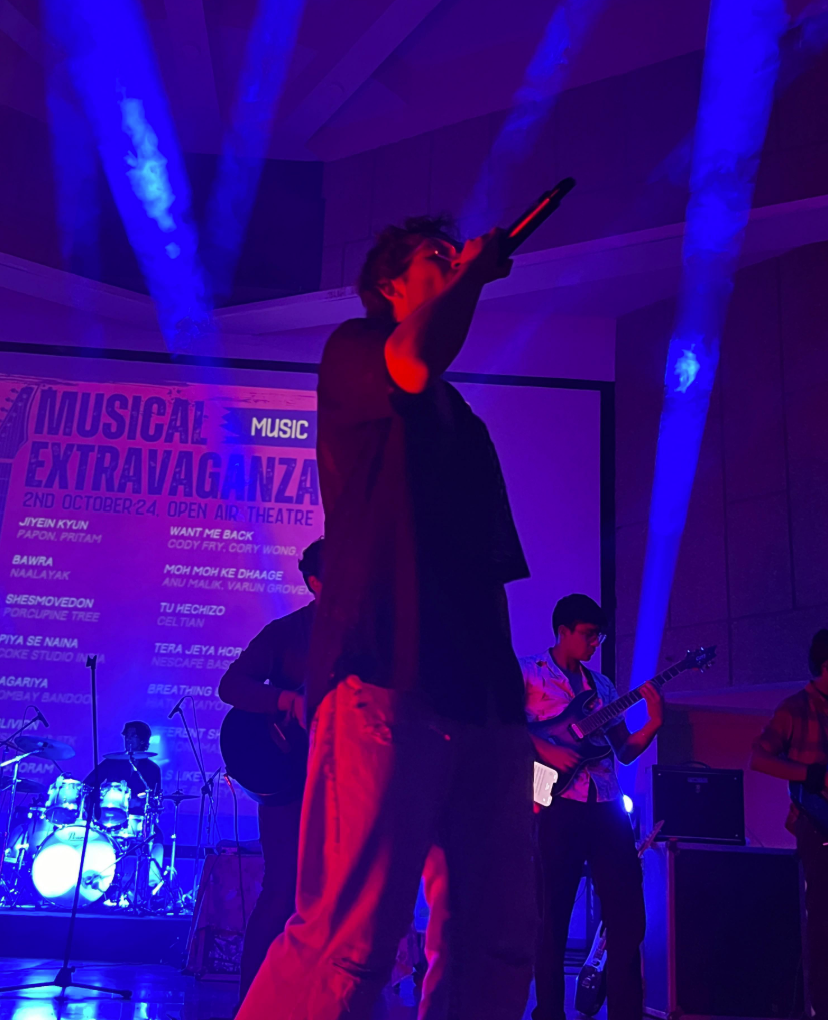
The Summer of Pollachi – Where Work Got Real
By the time I stepped into the actual internship phase, I thought I was ready. But nothing truly prepares you for the real thing—your first experience in a corporate, industrial setting, with real people, real expectations, and no comfort zone.
When I received my posting, I was skeptical.
Pollachi—a quiet town near Coimbatore in Tamil Nadu.
I’d expected remote locations; we all knew the ITC Foods division often posted interns at factory sites. But still—going there alone, not knowing the local language, made it feel daunting. I couldn’t shake off the uneasiness. Before that, though, came the corporate induction. I landed in Kolkata for the main ITC induction, and it blew my mind. We stayed in a 5-star hotel, suited up, surrounded by peers from across the country. For two days, we walked through ITC’s history, legacy projects, work culture, and impactful internships from previous years. It was grand. Inspiring. Intense. And in its own way, a reward for having made it here. But just as I was settling into that feeling, I was on the move again—this time to Bangalore for the division-specific induction for Foods. It was more grounded, more technical, and gave us a preview of what our roles would entail.
And then—I flew to Pollachi.
From metropolitan hotels to the foothills of the Valparai hills, the contrast was sharp. But the place was stunning. Green. Serene. Alive with nature. The air felt different. My stay was comfortable, well arranged, and the ITC team ensured I had what I needed. But there was one thing no one could prepare me for what came next. I was alone in my location. I had no batchmate, no close friend around. And the language barrier made even small things—like ordering food—an adventure. Most meals were sambar-rice, and north Indian food was barely available. Communication with the shopkeepers, auto drivers, and even the factory staff was an ongoing effort in gestures and guesses. But soon, I found rhythm. My posting was at ITC’s candy factory, and I had been assigned three projects—each requiring technical understanding, analysis, and problem-solving. Unlike many internships, this wasn’t shadow work. I wasn’t fetching data for someone else’s spreadsheet. I was expected to understand the entire production line, identify areas of improvement, and work hands-on with 2–3 dedicated machines.
I spent long hours in the factory—six days a week, often 10+ hours a day. I had only 2–3 off days throughout those two months. I got my hands dirty. I stood next to machines, observed processes, took notes, questioned operators, made modifications, and interacted directly with the ITC team on-site. This was real engineering. Real decision-making. And it came with
freedom. That was the most surprising part—I wasn’t micromanaged. I was trusted. And that trust made me push harder. But the weight of the work wasn’t just physical.
Every night, I’d come back to my room—alone. There were no friends to decompress with. No late-night wing talk. Just me, my notes, and my phone. I stayed in touch with my family and a few close friends. Video calls kept me sane. I’d hear about their cities, their projects, their fun weekends, and I’d quietly note how different my internship experience was. Not better or worse. Just different.
And somewhere in that quiet, in that distance, I grew up a little.
My lens changed. I started to see things differently. The way teams worked, the real-world challenges, the stakes of even small changes on the floor—it all felt more serious, more meaningful than any classroom problem I’d solved. The wait for PPO results would stretch on. And I was anxious. But no matter what the result would be, I knew this much:
I had shown up. I had delivered. And more than anything, I had proven to myself that I could walk into the unknown—and come out stronger. At the end of the internship, I underwent six rounds of PPO reviews. Each review pushed me to justify my work—not just technically, but in terms of impact. I had to think like a professional, not a student. And that shift… it changed
everything. This wasn’t just a project. This was a preview of life after college. Of real work. Real people. Real constraints. And real contribution. By the time I wrapped up and left Pollachi, I wasn’t the same person who had nervously googled “where is Pollachi” two months earlier. I came home tired, tanned, but fulfilled. And just the next month my manager
there contacted me and told me that my work actually really helped. I felt proud.
Fourth Year – The Last Lap and the Long Goodbye
I returned to campus after the summer internship in Pollachi with a head full of questions and a heart full of hope. I had given it my all. Six PPO reviews, three full-fledged projects, solo living, factory floor hustle—I believed I had a chance. But I didn’t know for sure. That made the beginning of seventh semester… strange. Around me, people were preparing for placements like their life depended on it. The stress was everywhere. Notes were being passed around. Juniors were huddled with seniors, and even the chai guy knew which company was visiting on which day.
But I was in this weird limbo.
On one hand, I hadn’t received my PPO yet. On the other, I didn’t want to do coding, and I knew I wouldn’t be able to grind like that for a fallback role. I had already made up my mind—if not ITC, I would only go for analyst or consulting roles. So while others ran to classes and mock tests, I found myself in the Music Club, trying to stay grounded. A part of me felt guilty—watching my friends drown in anxiety while I stayed away from the heat. But I also understood that guilt wouldn’t help anyone.
And then came August.
It was intern season for my juniors now. I had taken so many mock interviews and sessions during my own summer—sharing tips, clearing doubts, reviewing resumes. Now, I watched my juniors go through their own versions of the Day 0 grind. I was there when some of them
cracked it. And I was there when some didn’t. Their journeys reminded me of my own breakdowns, my own panic calls to family—and how I came out of that storm.
And then, on August 23rd, it happened. I got the call. PPO confirmed.
I still remember staring at the screen for a few seconds, just absorbing those words. I deleted all my resume drafts that night and had a sigh of relief .But the journey wasn’t over—not even close. Because now came the time to be there for others.
The Placement Season – Chaos and Closure
As placements neared, campus changed. You could feel it in the air. People walk faster. Eyes more tired. Friendships turning tense. Everyone became their own island—focused, driven, scared. I helped where I could. Reviewed resumes. Held mock GDs. Offered company-specific insights from my internship. But the emotional part was heavier. Some of my closest friends hadn’t secured PPOs. And they were now staring into the abyss of Day 0 with all its uncertainty. We tried to keep each other afloat. And then December came.
Placement Week.
No sleep. Constant refreshes of interview lists. Running between Hall-13 wings. Group chats exploding. Seniors being spammed. People getting ghosted mid-process. People breaking down. People hugging after selections. People walking alone after rejections. It was madness. And even though I wasn’t in it—I felt everything. I had friends across the
spectrum. And I saw all of it—success, bitterness, redemption, guilt. There was no space for grudges anymore. Old fights dissolved.
The batch came together.
I still remember the nights when my closest friends got placed. Some cried, the others just sat still. Those nights, we didn’t sleep. We just sat in the wing corridor, talked about our journeys, and realized that the scariest part was almost over. One week later, most people were sorted. Some still had interviews coming. But the peak storm had passed.
We made plans for Goa, laughed again like old times, and for the first time in months—breathed freely.
One Last Inter IIT – One Last Song
My musical journey wasn’t over yet . Because one last Inter IIT Cultural Meet remained. And it meant everything to me. This time, we had the best team I could have hoped for—my closest batchmates, juniors I mentored, friends I had fought and laughed with. Everyone was fully involved, and we wanted to give it our all. We trained like never before—complex songs,
difficult transitions, high-risk arrangements. We questioned everything. But we trusted each other. And when we reached the host campus, we walked in knowing—this would be our last time representing IITK together.
I performed a song I had written myself—my own lyrics, my own emotion, poured out in front of 22 IITs. I held the mic with every ounce of presence I had. I had become the guy who holds the stage. That was my role. That was who I was.
We didn’t win this time. But that didn’t matter.
The respect we received, the cheers we heard, the pride we felt—it told us everything. Our juniors had grown. Our team had bonded. Our legacy was in good hands.
“Sometimes, you don’t need validation to know you’ve done something right.”
Eighth Semester – Letting Go, Holding On
The final semester came quietly. Almost everyone was placed. There were no real classes anymore. People were chill. The masks had dropped. The race was over. But I still had one unfinished promise—to graduate with a CPI of 8.5. I was close. Very close. I got my highest ever spi of 9.4 last sem.I just had to maintain that. So I carefully picked 4 courses and a UG
project with a professor I had worked with before. I stayed focused, not paranoid.
And the Music Club still remained. I wasn’t Coordinator anymore, but I was still performing. Still guiding juniors. Still living it till the end.
In January we had our second last event. I was supposed to perform “Bandeh”—a special performance with my former co-coordinator. It would’ve been our first duet. A final send-off. But due to time constraints, we couldn’t perform it. That hurt. It felt incomplete.
But fate had other plans.
In April, just weeks before farewells, we finally performed “Bandeh” in our last music club event ever, The ME’25.
All four Coordinators—together—for the first and last time.
And that one line—
“Arre ruk jaa re bandeh”—
echoed inside me like a goodbye.
I also performed “Bheegi Bheegi” with my closest friend from the club—the same friend who had been my anchor all these years. It was the song we had dreamt of singing together since first year. It wasn’t easy. If you know, you know. But we pulled it off. Our juniors stood, clapped, and honored our journey. The club paid its respects.
And then came the year-end villa party. It was wild. Emotional. Chaotic. Perfect. (Details? DM me. That night belongs to us.)
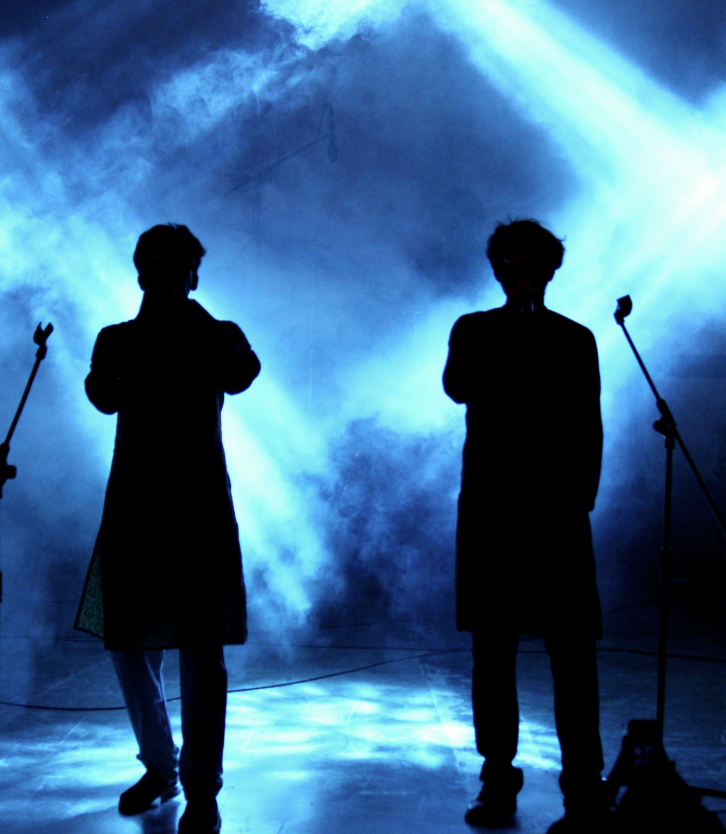
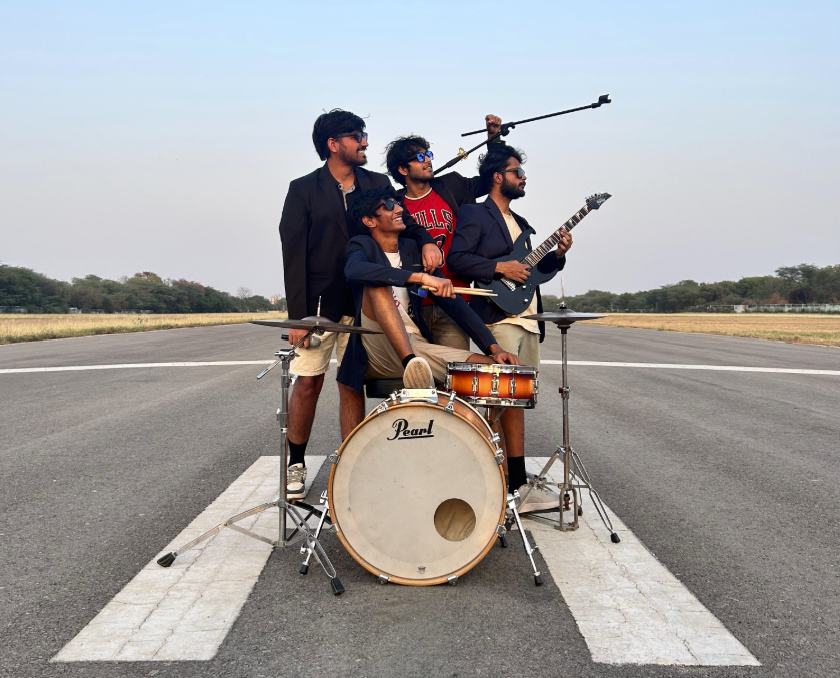

The End
March brought the Goa trip—our Ache Launde gang of seven. I was one of the planners, and I even got us custom printed T-shirts with our silhouettes and a tagline that ended up going viral among the batch. The trip itself? What happens in Goa… stays in Goa.
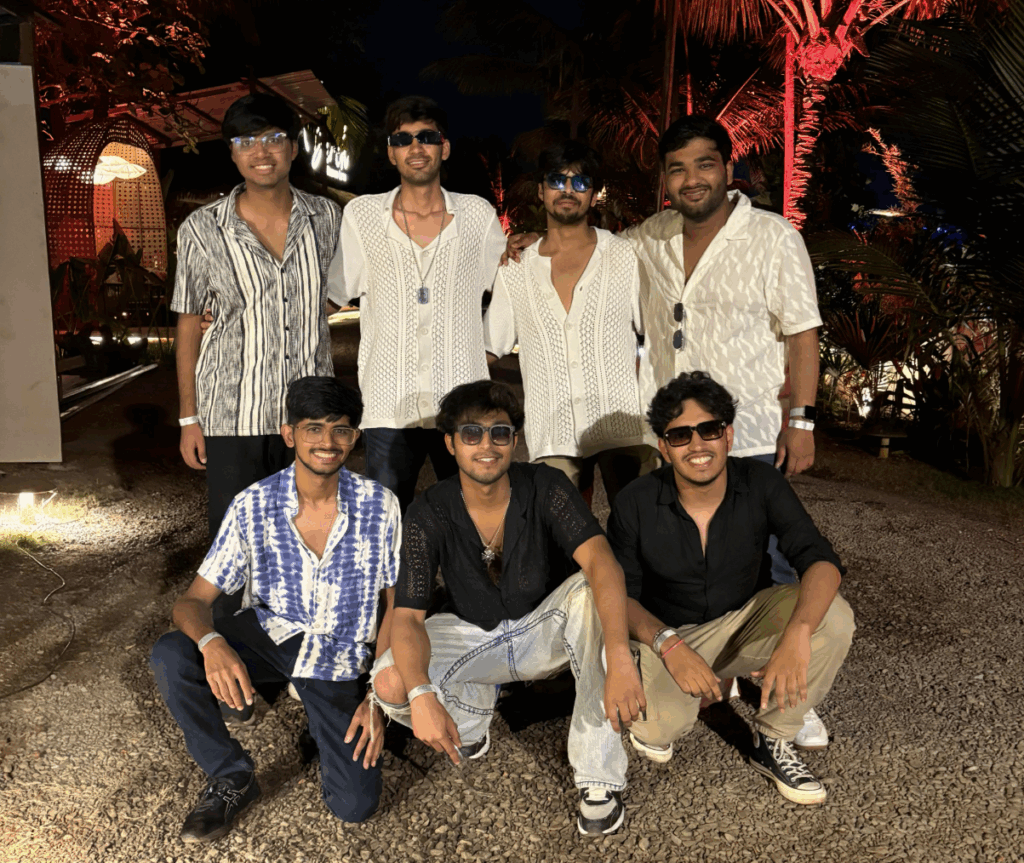
April brought closure. Old first-year friends came over. We celebrated Holi at my home with my family. It felt like all timelines—past, present, and future—had converged for a moment of stillness.
The last fest.
The last class.
The last walk
And finally—Endsems. These felt different. We all knew somewhere that this will be the last time we are studying here in this campus, the last time we will go to the library. The last time we will put in all nighters to study peacefully yet in a hurry. So many mixed emotions, I don’t think I can ever explain to myself even what I felt in that week of studying.
I gave my project presentation after the last written endsem and remember being frustrated since all of my friends were free while I was there completing this project. But then that was also over. I packed slowly over the following week. Slept on the floor with all my friends, all the beds pushed together. These were heartbreaking times. Some heartfelt conversations, times of actually meeting and sorting out fights with old friends.
Then came the goodbye to my closest person. She was there with me through all my highs and lows and knew me the most at that particular point of time. It was such a great feeling of having someone like a family, away from home. I will be always grateful . Realising that I could no longer spend time with her within the campus, broke me.
Alongside all this was Scribble Day, Graduation Dinner, Dance Extravaganza and of course the batch photoshoot. The batch video, I remember doing with the music club and my Ache Launde. Just some lazy seniors, 7am in the morning, full suits and shades, dancing in the middle of nowhere. All these things were just some ways to actually be together for the last time.
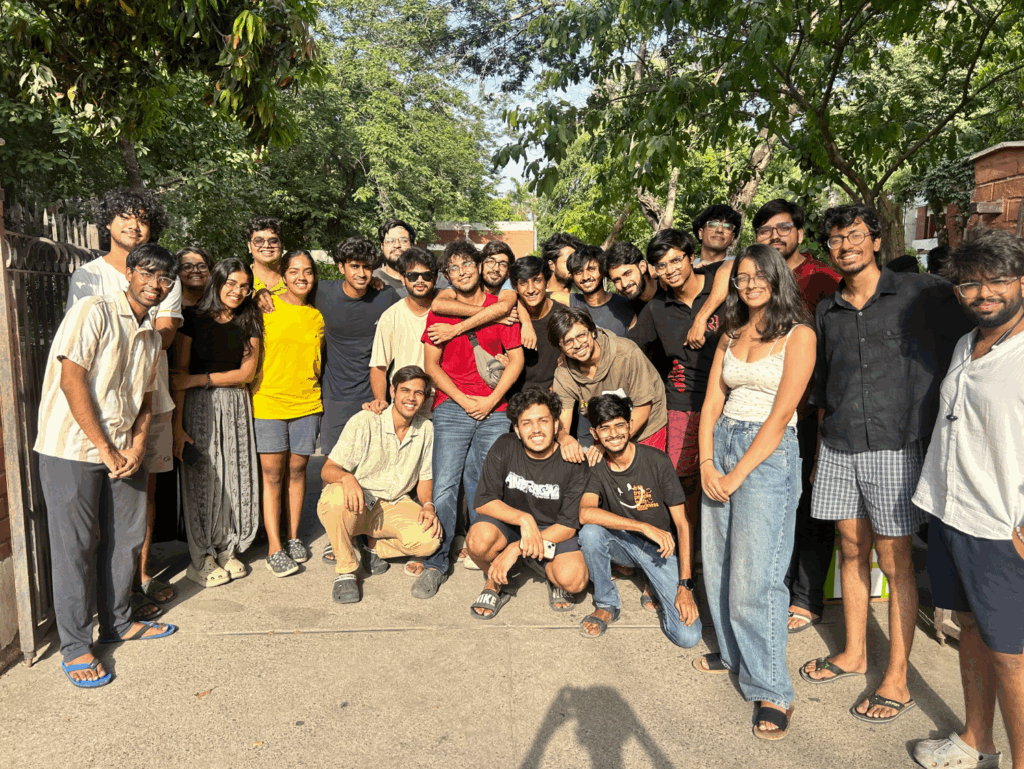
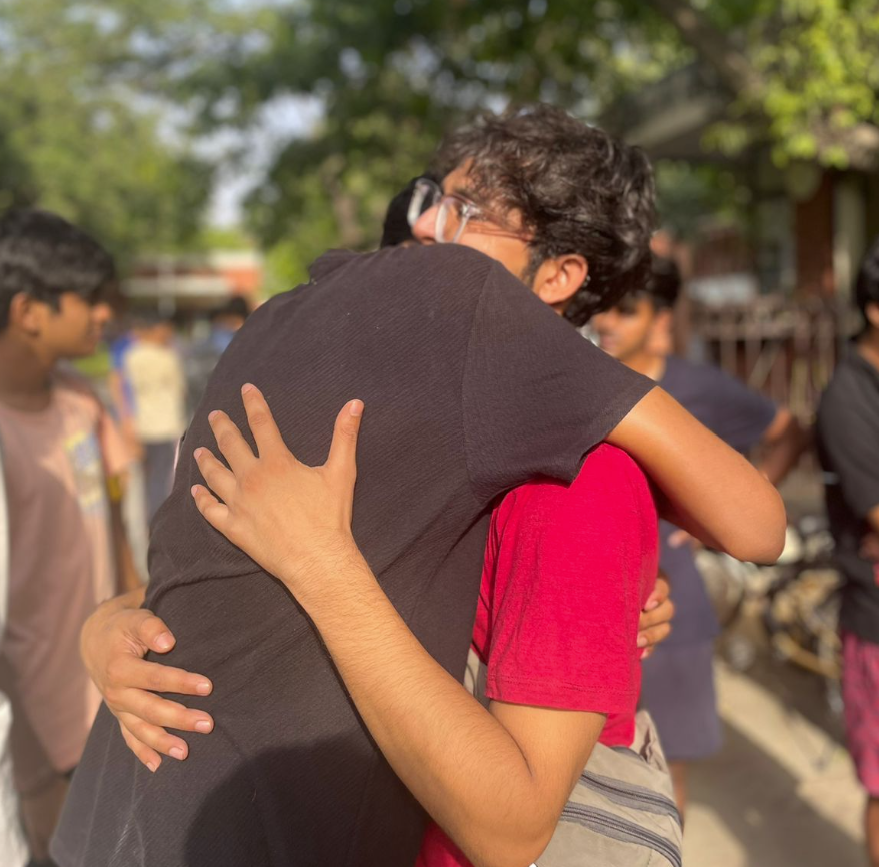
Then the last week went by so slowly, it was so hard to pass every second with the thought of leaving all this. Just the night before leaving , I had received my final SPI—8.8.
Which meant…I had done it.
8.5 CPI. First Division Distinction. For which I worked so hard. It finally paid off. A full circle with second year Rohan who wanted this.
And on May 14th-2025, I stood at the main gate. Hugged every friend. Every junior. Every memory. And I cried for one last time and left this humble abode and along with it every memory I made and cherished here.
“IIT Kanpur took a lot. My energy. My comfort. My certainty. But it gave me back far more. A voice. A purpose. A family. And a story.”
Thank you, IITK.
Virmani
signing off
Written by: Rohan Virmani
Edited by: LAnikait Dixit, Amoghsiddhu Ninganur.
Designed by: Pragya Puri
